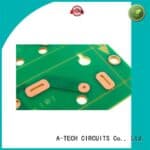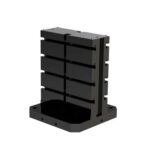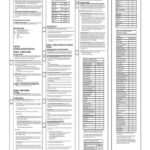What is Contract Electronic Manufacturing?
Contract electronic manufacturing, also known as electronics contract manufacturing (ECM), is a business model in which a company (the contractor) manufactures electronic components or products for another company (the client or OEM). The contract manufacturer provides services such as design, fabrication, assembly, testing, and packaging of electronic products based on the client’s specifications and requirements.
Key Features of Contract Electronic Manufacturing
- Outsourcing: Contract manufacturing involves outsourcing the production of electronic components or products to a third-party company.
- Specialization: Contract manufacturers often specialize in specific areas of electronic manufacturing, such as printed circuit board (PCB) assembly, cable and wire harness assembly, or box build assembly.
- Cost-effectiveness: By outsourcing to a contract manufacturer, companies can reduce their manufacturing costs, as they do not need to invest in expensive equipment, facilities, and skilled labor.
- Flexibility: Contract manufacturing allows companies to scale their production up or down based on market demand, without having to make significant investments in infrastructure.
- Quality control: Contract manufacturers are responsible for ensuring that the products they manufacture meet the client’s quality standards and specifications.
What is OEM?
OEM stands for Original Equipment Manufacturer. In the context of electronic manufacturing, an OEM is a company that designs and specifies the products that are manufactured by a contract manufacturer. The OEM owns the intellectual property rights to the product design and is responsible for branding, marketing, and selling the final product to end-users.
Key Features of OEM
- Product design: OEMs are responsible for designing and developing the products that are manufactured by contract manufacturers.
- Intellectual property: OEMs own the intellectual property rights to the product design, including patents, trademarks, and copyrights.
- Branding: OEMs are responsible for branding and marketing the final product to end-users.
- Quality control: Although contract manufacturers are responsible for ensuring product quality during the manufacturing process, OEMs are ultimately responsible for the overall quality and performance of the final product.
- Customer support: OEMs provide customer support and warranty services for the products they sell.
Differences Between Contract Manufacturing and OEM
While contract manufacturing and OEM are closely related, there are some key differences between the two business models:
| Aspect | Contract Manufacturing | OEM |
|---|---|---|
| Focus | Manufacturing | Design, branding, and marketing |
| Ownership | Manufactures products for clients | Owns the product design and intellectual property |
| Branding | Typically does not have its own brand | Responsible for branding and marketing the final product |
| Relationship | Provides manufacturing services to multiple clients | Works with one or more contract manufacturers |
| Expertise | Specializes in manufacturing processes and technologies | Specializes in product design, development, and marketing |

Advantages of Contract Manufacturing for OEMs
There are several advantages for OEMs in partnering with contract manufacturers:
- Cost savings: By outsourcing manufacturing to a contract manufacturer, OEMs can reduce their manufacturing costs and avoid investing in expensive equipment and facilities.
- Access to expertise: Contract manufacturers often have specialized expertise in manufacturing processes and technologies that OEMs may not possess in-house.
- Scalability: Contract manufacturing allows OEMs to scale their production up or down based on market demand, without having to make significant investments in infrastructure.
- Focus on core competencies: By outsourcing manufacturing, OEMs can focus on their core competencies, such as product design, marketing, and sales.
- Reduced time-to-market: Contract manufacturers can often manufacture products more quickly and efficiently than OEMs, reducing the time-to-market for new products.
Challenges of Contract Manufacturing for OEMs
While there are many advantages to contract manufacturing, there are also some challenges that OEMs need to be aware of:
- Loss of control: When outsourcing manufacturing to a contract manufacturer, OEMs may have less control over the manufacturing process and quality control.
- Intellectual property risks: OEMs need to ensure that their intellectual property is protected when working with contract manufacturers, particularly if the manufacturing is done overseas.
- Communication and coordination: Working with a contract manufacturer requires effective communication and coordination to ensure that products are manufactured to the correct specifications and delivered on time.
- Dependence on supplier: OEMs may become dependent on their contract manufacturer, which can be a risk if the manufacturer experiences financial or operational problems.
- Cultural and language barriers: When working with contract manufacturers in different countries, OEMs may face cultural and language barriers that can impact communication and coordination.
Choosing the Right Contract Manufacturer
Choosing the right contract manufacturer is critical for the success of an OEM’s products. Here are some factors to consider when selecting a contract manufacturer:
- Expertise: Look for a contract manufacturer with expertise in the specific manufacturing processes and technologies required for your products.
- Quality control: Ensure that the contract manufacturer has robust quality control processes in place to ensure that products meet your specifications and standards.
- Capacity and scalability: Choose a contract manufacturer with the capacity to meet your current and future production needs, and the ability to scale up or down as required.
- Location: Consider the location of the contract manufacturer, particularly if you need to visit the facility regularly or if there are shipping and logistics considerations.
- Financial stability: Choose a contract manufacturer with a strong financial position to ensure that they can meet your long-term production needs.
- Communication and responsiveness: Look for a contract manufacturer with excellent communication skills and a track record of responsiveness to client needs and concerns.
FAQ
1. What types of products can be manufactured by contract electronic manufacturers?
Contract electronic manufacturers can manufacture a wide range of electronic products, including:
– Printed circuit boards (PCBs)
– Electronic components and assemblies
– Wiring and cable harnesses
– Box build assemblies
– Medical devices
– Automotive electronics
– Consumer electronics
– Industrial electronics
2. What are the benefits of outsourcing manufacturing to a contract manufacturer?
Outsourcing manufacturing to a contract manufacturer can provide several benefits, including:
– Cost savings
– Access to specialized expertise and technologies
– Scalability and flexibility
– Reduced time-to-market
– Ability to focus on core competencies
3. How can OEMs protect their intellectual property when working with contract manufacturers?
OEMs can protect their intellectual property when working with contract manufacturers by:
– Signing non-disclosure agreements (NDAs) with the contract manufacturer
– Registering patents, trademarks, and copyrights for their product designs
– Conducting due diligence on the contract manufacturer’s security and confidentiality processes
– Limiting access to sensitive information and technologies
– Using secure communication channels and data storage methods
4. What should OEMs look for when choosing a contract manufacturer?
When choosing a contract manufacturer, OEMs should look for:
– Expertise in the required manufacturing processes and technologies
– Robust quality control processes
– Capacity and scalability to meet production needs
– Financial stability and long-term viability
– Excellent communication and responsiveness
– Alignment with the OEM’s values and culture
5. How can OEMs ensure effective communication and coordination with contract manufacturers?
OEMs can ensure effective communication and coordination with contract manufacturers by:
– Establishing clear communication channels and protocols
– Defining roles and responsibilities for each party
– Setting clear expectations and metrics for performance
– Conducting regular meetings and reviews to discuss progress and issues
– Using project management tools and techniques to track and manage production
– Investing in building strong relationships and trust with the contract manufacturer
Conclusion
Contract manufacturing and OEM are closely related but distinct business models in the electronic manufacturing industry. While contract manufacturers focus on providing manufacturing services to multiple clients, OEMs are responsible for product design, branding, and marketing. OEMs can benefit from outsourcing manufacturing to contract manufacturers through cost savings, access to expertise, scalability, and reduced time-to-market. However, they also need to be aware of the challenges, such as loss of control, intellectual property risks, and communication barriers.
Choosing the right contract manufacturer is critical for the success of an OEM’s products. OEMs should look for contract manufacturers with relevant expertise, robust quality control processes, capacity and scalability, financial stability, and excellent communication and responsiveness. By partnering with the right contract manufacturer and investing in effective communication and coordination, OEMs can leverage the benefits of contract manufacturing while mitigating the risks and challenges.






Leave a Reply